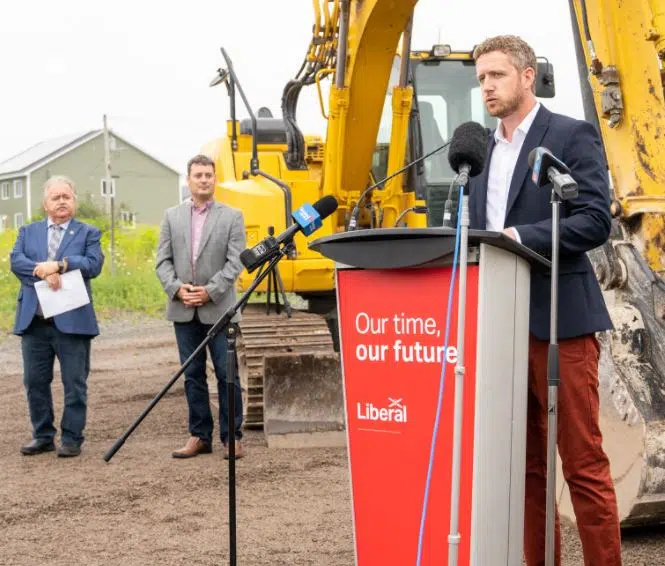Liberal Leader Iain Rankin was in Antigonish Wednesday, beginning the day campaigning with a major commitment to improving two of the province’s major highways.
Rankin says a provincial Liberal government would move to twin both Highway 103 and Highway 104 in some of the most dangerous areas. On Highway 103 they plan to continue twinning efforts in the section approaching Bridgewater. On Highway 104 they want to twin the section that runs from Antigonish to the Cape Breton causeway.
Rankin added that making improvements to infrastructure helps the government solve two other issues that may not seem related. “By improving and helping the economy recover that helps us as a province generate more revenue which in turn can be used for things like health care and housing,” Rankin said.
In response to the commitment of twinning both stretches, Lunenburg PC Candidate, Susan Corkum-Greek issued a release criticizing the announcement.
“Iain Rankin doesn’t want Lunenburg voters to be asking his local cabinet minister why there still isn’t a doctor for every Nova Scotian as the Liberals promised eight years ago,” said Corkum-Greek. “That’s why Iain Rankin went old school and dug out the old political trick of an election highway promise. Voters know better.”
Rankin later responded to those remarks, saying his party plans to tackle multiple issues at the same time, including infrastructure and healthcare.
He also provided reasons as to why the Liberals failed in meeting a promise surrounding family doctors. Rankin says while his government was in charge, Nova Scotia became the province with the highest-paid doctors, a move he signaled was beginning to pay dividends, saying government investments in health care infrastructure will enable Nova Scotians to get the type of care they need at facilities designed for particular health issues.
Rankin also defended his party’s position on rent control which has come under attack from the NDP who claim the Liberals plan to cancel it.
“It’s not a walk back, what we did was institute a rental cap through the pandemic recognizing that the supply percentage has been so low that a small percentage of landlords have increased beyond what we think is reasonable and that is when the government needs to step in,” Rankin said. “The housing commission which has multiple stakeholders including the Association for Affordable Housing came to a consensus that rent control is not the long term solution.”








